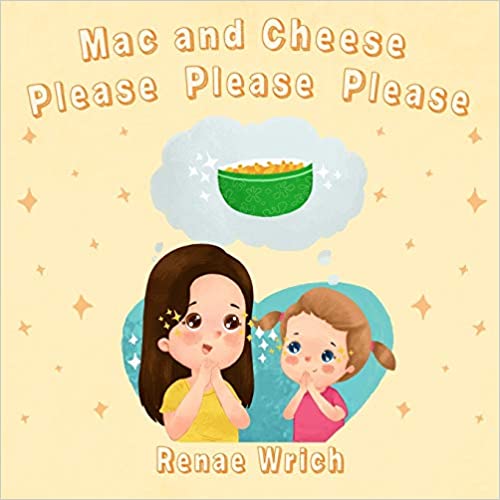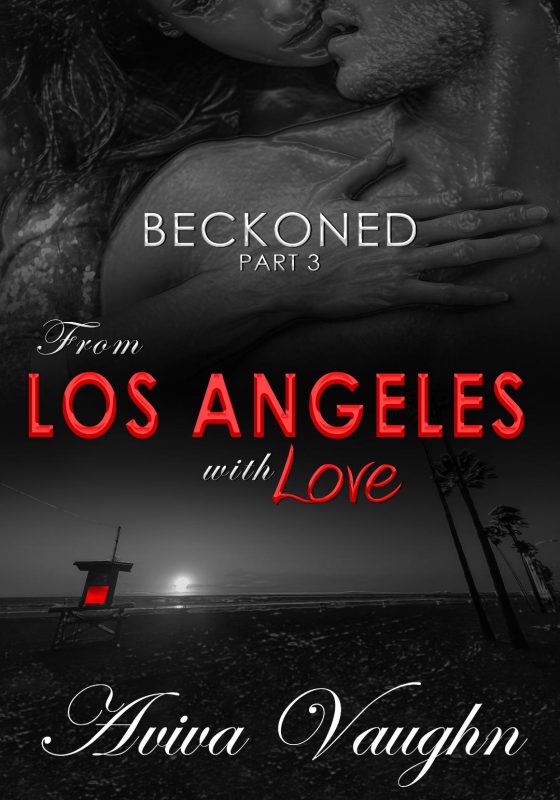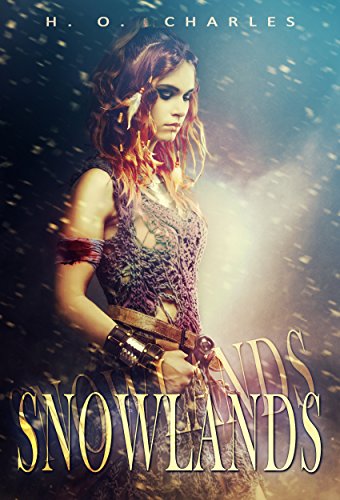Critique Groups or Beta Readers?
March 3, 2019 by Janet Elizabeth Lynn and Will Zeilinger in category Partners in Crime by Janet Elizabeth Lynn & Will Zeilinger tagged as Beta Readers, critique groups, editing, Proofreading
What’s the difference and why do we need them anyway?
by
Will Zeilinger
Janet and I co-write the Skylar Drake Mystery series and we’ve had people say to us, “I guess you proofread each other’s work.”
Both of us are intimately involved in the writing and initial editing, as such, we can get too close to it and sometimes miss big issues. That’s why we would never submit something for publication without the help of critique groups and/or beta readers to assist us.
What exactly, are we talking about? Maybe this will help.

Beta Readers are individuals who evaluate your manuscript by reading it through and telling you about flaws or holes in your story. Beta has come to mean a sort of testing phase and that is what a beta reader does. You have them read your work as a way of testing it for readability, and overall structure.
A Critique Group is made up of several people (usually writers, but sometimes includes readers) who meet together. You as an author, provide a short story or maybe a chapter from a novel for the group to read and critique.
Let me stop here—The very word ‘critique’ is based on the word criticism, and in our culture that word has taken on a negative connotation, since to criticize someone’s writing usually means to tear it apart. However, the dictionary definition of the word ‘critic’ indicates it is “someone who passes judgement on something, usually in reference to art and literature.”
That is a neutral statement…judgement can be either positive or negative, or a combination of both. So, it’s not, necessarily a bad thing.
This may all sound scary, especially to a beginning author. They’re taking your baby away from you and who knows what they will return in its place? Will your prose become something unrecognizable? After all the hours, days, and nights of sweat and deprivation…will they drop a piece of crap in your lap?

Here’s the truth: Having another set of eyes and an impartial opinion of your work-in-progress is an essential step if you are planning to self-publish, but it can also help you in the quest to secure an agent or publisher if your plan is to go the traditional route with your work.
“But it’s gonna hurt!” you say. Don’t look at it that was. This is where you have the power to accept or reject any suggestions or critiques of your work.
As a career graphic designer, I remember vividly, the first critiques in my college classes. We all posted our concepts on the wall of the classroom. The professor would walk back and forth, making “hmmph” and “umm” noises before turning and asking the rest of us in class what we thought of each piece. There were, of course, a variety of reactions to them.
As students, we’d take each into consideration. I didn’t always accept their suggestions, but I needed to hear and see it because I’d been too close to my work to be objective.
One of the things my professor said that I’ve carried over into my writing was when he would hold his hand over a portion of the drawing and ask, “Does this still work without this part?”
I found that eliminating nonessential pieces has helped streamline my work and make it read easier.
I needed to learn to accept constructive, positive critiques in either my designs or my writing, and discount those that were not pertinent or objective.
Letting others check your work-in-progress is a great way to improve your writing and make friends too. Your choice: Beta Readers or Critique groups or both. Find the right one for you.
Charmed: An Interview with Tari Lynn Jewett
March 2, 2019 by Jann Ryan in category Jann says . . . tagged as #Charmed Writers, #PleaseSayYes, Flash Fiction 2019, Tari Lynn Jewett, The Charmed Connection

Joining us today is A Slice of Orange author Tari Lynn Jewett. Tari lives in Southern California with her husband of nearly thirty years (also known as Hunky Hubby). They have three adult sons, all who live nearby. For more than fifteen years she wrote freelance for magazines and newspapers, wrote television commercials, radio spots, numerous press releases, and many, MANY PTA newsletters. As much as she loved writing those things, she always wanted to write fiction . . .and now she is.
When she’s not writing, you can find her at the beach, in her sewing room, or curled up with a good book. She’s also been known to play a mean game of pool.
Tari believes in happily ever afters . . . because she’s living hers.
You can follow Tari on social media:
Website: tarilynnjewett.com
Facebook: Tari Lynn Jewett
Facebook reader group: Tari’s Tribe
Instagram: Tari Lynn Jewett
Instagram: Tari Lynn Jewett
Tari’s A Slice of Orange column “Charmed Writers” posts on the 10th of every month.
Jann: The #CharmedWriters Facebook group is such a wonderful group. What motivated you to start it?
Tari: Charmed Writers began kind of by accident, the way so many things I do begin. I was Pro Liaison for my very favorite writing group, the Orange County Chapter of Romance Writers for America. Many of our writer friends were going to the 2016 Romantic Times Conference. I decided that the rest of us shouldn’t be left out of the fun, and at the last minute created a Stuck at Home writing event on Facebook. I invited the PRO group, and told them to invite their friends, so it was open to everyone. Twenty-five people participated in that first event. I wanted to find a way to motivate and reward everyone for participation, so I ordered charms to give out for reaching different goals. We wrote all week, motivated each other, inspired each other and got to be very good friends. At the end, we didn’t want it to be over, and Charmed Writers was born.
Jann: Did you expect it to be so well received?
Tari: I thought it would be a place for the original members to keep working together, but they started asking to invite friends, and people started hearing about the group and asking if they could join. I never expected it to grow as it has.
Jann: What’s the best part of #Charmed Writers?
Tari: Oh, my gosh. The best part of Charmed Writers is the amazing friends that I’ve made, and seeing the love and support that people are willing to give each other. I’ve learned so much from Charmed Writers, and I’m so honored to be part of this amazing group of writers.
Jann: Tell us about Charmed Writers Presents: Flash Fiction 2019
Tari: Charmed Writers Presents Flash Fiction 2019 is an anthology of 41 stories, by 41 authors who are members of Charmed Writers. All of the stories are approximately 500 words long, and are in a variety of genres. This is another project that started by accident. Last year on June 13th I saw a post that Friday, June 16th would be National Flash Fiction Day. I thought it would be to create an event to challenge Charmed Writers members to write a 500-word story. 16 people participated in the event. I told everyone we would do something with the stories. I thought it might be a good time to start a Charmed Writer website, and post our stories there. However, Slice of Orange owner, and Charmed Writer, Marianne Donley, sent me some book covers she’d created for an anthology, and we went with the idea. We opened it up to the Charmed Writers group again, and ended up with an amazing mix of stories from bestselling authors, to debut authors. I truly was an amazing experience. Marianne Donley did the heavy lifting on this project, without her it wouldn’t have happened.
Jann: Will there be more Flash Fiction anthologies?
Tari: LOL, I’m not sure yet! But it’s possible. The current anthology will be available for one year, and the only way to get it is through a Charmed Writer, or by being a member of The Charmed Connection. And did I mention that it’s free? I think you can get it here through A Slice of Orange as well.
(Editor’s note: Click the Book Link or the cover to go to the page where Flash Fiction 2019 is available.)
Jann: You also started The Charmed Connection for readers–another very successful group. Why did you start The Charmed Connection?
Tari: Thank you. The Charmed Connection started naturally as a place for Charmed Writer authors to connect with readers. We have ‘bookshelves’ in the group where readers can find books by Charmed Writers, and various authors drop in and share their lives, play games and most importantly get to know our readers.
Jann: What fun things do you have planned for The Charmed Connection?
Tari: There’s always something going on in The Charmed Connection. We have parties, special guests, giveaways and games. We’ve done one Book Club selection, and I’m hoping to do more of them. I’d like to see more Facebook Live events in the group, those are always fun, and I’d like to do a reader project that’s been rolling around in my head for a little while. I’ll have to let you know more about it when the idea is fully formed!
Jann: How does a reader or an author join?
Tari: To join The Charmed Connection just go to The Charmed Connection group on facebook, and click “join” and answer three questions about reading. It’s that simple! Then just jump right in and join the fun.
Jann: Your fun romantic comedy, #PleaseSayYes (#HermosafortheHolidays Book1) was just released. (I love the cover!) Tell us a little bit about the book.
Tari: Thank you! #PleaseSayYes is a novella, and a romantic comedy that was released first in Valentine’s boxed set last year with stories by 12 other authors. It’s set just down the street from me in Hermosa Beach. Lucy, my heroine, a kind of bookish schoolteacher finds she has a social media secret admirer, and when his posts to her go viral her world turns upside down. It’s the first in a holiday series set in Hermosa Beach. It’s very sweet, as Hunky Hubby says, it’s a story you can share with your mother and daughter.
Jann: So, Book 1 implies there will be a Book 2—When will it be published and what can you tell us about it?
Tari: Book 2 #SilverBracelets, is a full-length novel, the story of Lucy’s friend and colleague, Ashley. There’s some payback for Lucy in the story as Ashley finds herself also part of a social media campaign, only Ashley doesn’t find this one so amusing. Many of the same characters are in this story, and I’ve had so much fun writing it. It will release in April.
Jann: What else do you write?
Tari: I freelance wrote non-fiction for magazines and newspapers for about 15 years, but as far as fiction goes, I’ve been working on a women’s fiction novel set in the 1920’s, and it’s also part of a series. It’s very different from my romcoms. This is darker and edgier, and I love writing every word of it, but it’s also the reason I started writing the romcoms. I needed to get my head out of the darker places every now and then.
Jann: When will it be released?
Tari: I wish I knew! I’m submitting this story to an agent, so when I get the good word, I’ll share with you!
Jann: Do you find yourself returning to certain themes in your stories? What? Why? I do.
Tari: Yes, definitely. The theme of ‘perfection’, trying to be perfect or have the perfect life frequently shows up in my writing. I didn’t realize it at first, and it’s subtler in the romcoms, but in most of the stories I write, the heroines seem to be working out a need to be perfect. I’d have to say that it’s something I struggle with myself, and I think many women do. We strive to be perfect, which of course is impossible, so we’re constantly setting ourselves up for failure. Hopefully, we eventually learn that we’re never going to be Perfect, all we can be is our best. And the truth is, that’s better than being perfect.
Jann: What’s the best writing advice you ever received?
Tari: I’m not even sure where I heard it first, and it goes back to that idea of Perfection. But, I’ve heard many successful authors, often at our OCC RWA meetings say There’s no wrong way to write a book, don’t worry about what other writers are doing, do what works for you. I think that’s absolutely true.
Jann: How do you stay motivated? What drives you to keep writing?
Tari: For me writing doesn’t require motivation. I’m compelled to write, good or bad, whatever is going on in my life, writing is my first outlet, both creative and emotional. It’s not a choice, I just do it… although, it’s a choice I would make if I had to.
Jann: Do you ever run out of ideas? If so, how did you get past that?
Tari: Running out of ideas is never a problem. In fact, the problem is generally not letting new ideas distract me from the current project! So, finding enough time is the problem!
Jann: What sound or noise do you love?
Tari: I think my favorite sound is the sound of my husband’s voice. I love picking up the phone and hearing him talk, or sitting across the table and listening to his voice.
Jann: What sound or noise do you hate?
Tari: Funny you should ask. We were at a fast food restaurant last night, and a man kept spinning the chair next to him. The chair needed oil and made a terrible screeching sound. I pretty much hated that!
Jann: What profession other than your own would you love to attempt?
Tari: I think I’d love to teach elementary school. Especially, 3rd or 4th grade.
Jann: What profession would you hate to do?
Tari: Anything to do with math. I couldn’t be an accountant, it would be very bad.
Thank you, Tari for answering our questions! Tari’s book are shown below. Click on the covers for buy (or free) links.
March Featured Author Alina K. Field
March 1, 2019 by A Slice of Orange in category Apples & Oranges by Marianne H. Donley, Featured Author of the Month tagged as Alina K. Field, March Featured Author, Regency Romances
Award winning author Alina K. Field earned a Bachelor of Arts Degree in English and German literature, but her true passion is the much happier world of romance fiction. Though her roots are in the Midwestern U.S., after six very, very, very cold years in Chicago, she moved to Southern California and hasn’t looked back. She shares a midcentury home with her husband, her spunky, blonde, rescued terrier, and the blue-eyed cat who conned his way in for dinner one day and decided the food was too good to leave.
She is the author of several Regency romances, including the 2014 Book Buyer’s Best winner, Rosalyn’s Ring. She is hard at work on her next series of Regency romances, but loves to hear from readers!
Alina’s column Quater Days, is published on A Slice of Orange the 28th of March, June, September, and December.
You can also visit her at:
Website
Facebook
Twitter
Goodreads
Pinterest
Instagram
Bookbub
Do I Need a Pseudonym to Write Fiction?
February 28, 2019 by The Extra Squeeze in category The Extra Squeeze by The Extra Squeeze Team, Writing tagged as author branding, Pen Names, Pseudonym, The Extra Squeeze Team
Dear Extra Squeeze Team
Do I need a pseudonym to write fiction?

USA Today Bestselling author of 35 books, including the Witness series and the new Finn O’Brien series.
No, you don’t need a pseudonym to write fiction unless you write hard core erotica and you don’t want your mom to know. I used a pseudonym twice in my 30 year career. The first time I was writing for Harlequin and they contractually owned an author’s name. That meant if I wanted to write for anyone else I would have to leave the name–and any consumer base that had accrued to that name–behind. The second time was when I wrote my first legal thriller. The men were big back then–Grisham, Turow–and the publisher wanted readers to assume I was a man. I went by my last name but initials for my first. There was no ‘about the author’ in those books and the whole thing felt very odd. In this day and age when building a brand is your sole responsibility, own your name and build a loyal readership around it.

Developmental editor who has worked for twenty plus years with new and established authors of both fiction and non-fiction, traditional and indie.
Traditionally, publishing under an assumed name was a useful tactic when a writer crossed genres. A non-fiction author whose brand is based on expertise in hunting edible fungi would want to use a pseudonym to publish a steamy romance. A fresh identity to woo a new readership avoids any confusion, possibly even irritation from those readers whose expectations would not be met. A reader who gets a lusty countess when they’re expecting a description of the spotted Nigerian toadstool will not be a repeat reader.
Fiction writers often use pseudonyms to switch between fiction genres. Robert Galbraith jumps (beautifully, I might add) between wizards and detective fiction. Harry Potter fans are diehards so it was wise for J.K. Rowling to present her new detective fiction under a pseudonym. Otherwise fans might have cast a withering spell when their expectations were squashed. Cormoran Strike solving crime was a big step off brand from Harry Potter.
It wasn’t long before the public learned that Galbraith was J.K. Rowling—with a brand that strong anything she writes would be impossible to hide, and why hide it. With her pseudonym public knowledge readers knew what to expect. Rowling’s brand remains intact and Galbraith’s work took off with a new readership. Impossible to say how many of those new readers were enticed simply by the author’s name, but the work stands solidly on it’s own merits now.
Your brand may not be as mighty as Rowling’s but it is as important to your success. No reason not to use a pseudonym to publish your fiction and no reason not to be completely open about it. Supplement the marketing of the fiction by using your existing fan base and marketing tools to launch this new facet of your career. Share the pseudonym on your twitter feed, tout the cover on your pinterest posts, introduce the new personae and the new fiction on your blog. If both your established name and your nom de plume are connected to your brand then fans can seek out whichever genre fits their reading expectations. And your brand is strengthened.

PR/Business Development coach for writers and artists; CEO, Creative Center of America; member, Forbes Coaches Council.
From a branding perspective, maybe you do need a pen name to write fiction. Here are some questions you might ask yourself…if any of your answers are yes, lean toward a pen name.
Ask: Is my own name too difficult to say, spell, or remember? Does my own name confuse readers with other authors or commercial brands? Does the subject matter or the chosen genre of my fiction conflict with the character of the other brands that I am building? Do I have a plan to manage the transparency required to promote a pen name?
If you answered yes to any of the above questions, explore the pen name option with enthusiasm and care. Remember: You are the brand. The books you write are products of the brand. No matter what you do, you must be able to represent your brand and your products with authenticity and with transparency.
I once advised a mystery-writing dentist to use a pen name because his novel was filled with graphic violence and hot sex scenes. His novel directly conflicted with the business brand for his successful dental practice which was built upon his real name. The novel he had written revealed a side of the mild- mannered doctor that the public did not know and frankly might have been shocked to meet. In that instance, using a pen name separated the dentist from the writer so that both could be promoted to proper audiences. A pen name provided some distance between his dental business and his writing business. A plan for transparency was built from the start so that he could be honest and open if patients realized that their beloved doctor was also that wild novelist.
Similarly, you might want to consider a pen name if you are writing fiction in genres that conflict with each other. The motivating idea would be to help the reader know and trust the brand name when they search for your work. The bridge between who you really are and your pen name better be built from the start or it could become problematic unexpectedly with one Did you know social media post.

Cover designer and author of the fantasy series, The Fireblade Array
H.O. is missing again this month. We suspect a long long holiday is to blame.

Star Magnolia by Neetu
February 26, 2019 by Neetu Malik in category Poet's Day by Neetu Malik tagged as Neetu, Spring, star magnolia
I awoke
to a sprouting of spring—
will you pin it in my hair?
I wonder
as the starry white blossoms
flutter in the cool morning breeze
I know
that they will blush
to the touch of warm sunny days
still to come
They are
a promise of tomorrow
as it rises from winter’s long sleep.
© Neetu Malik
Affiliate Links
A Slice of Orange is an affiliate with some of the booksellers listed on this website, including Barnes & Nobel, Books A Million, iBooks, Kobo, and Smashwords. This means A Slice of Orange may earn a small advertising fee from sales made through the links used on this website. There are reminders of these affiliate links on the pages for individual books.
Search A Slice of Orange
Find a Column
Archives
Featured Books
MAC AND CHEESE, PLEASE, PLEASE, PLEASE
They liked macaroni and cheese SO much, if they could, they would eat it for breakfast, dinner, and lunch!
More info →CHRISTMAS KISSES
Heat up the holiday with ten dreamy regency rogues!
More info →BECKONED, PART 1: FROM LONDON WITH LOVE
The regret of missed opportunity...
More info →SNOWLANDS
Will she be able to accept the person her memories describe?
More info →Newsletter
Contributing Authors
Search A Slice of Orange
Find a Column
Archives
Authors in the Bookstore
- A. E. Decker
- A. J. Scudiere
- A.J. Sidransky
- Abby Collette
- Alanna Lucus
- Albert Marrin
- Alice Duncan
- Alina K. Field
- Alison Green Myers
- Andi Lawrencovna
- Andrew C Raiford
- Angela Pryce
- Aviva Vaughn
- Barbara Ankrum
- Bethlehem Writers Group, LLC
- Carol L. Wright
- Celeste Barclay
- Christina Alexandra
- Christopher D. Ochs
- Claire Davon
- Claire Naden
- Courtnee Turner Hoyle
- Courtney Annicchiarico
- D. Lieber
- Daniel V. Meier Jr.
- Debra Dixon
- Debra H. Goldstein
- Debra Holland
- Dee Ann Palmer
- Denise M. Colby
- Diane Benefiel
- Diane Sismour
- Dianna Sinovic
- DT Krippene
- E.B. Dawson
- Emilie Dallaire
- Emily Brightwell
- Emily PW Murphy
- Fae Rowen
- Faith L. Justice
- Frances Amati
- Geralyn Corcillo
- Glynnis Campbell
- Greg Jolley
- H. O. Charles
- Jaclyn Roché
- Jacqueline Diamond
- Janet Lynn and Will Zeilinger
- Jeff Baird
- Jenna Barwin
- Jenne Kern
- Jennifer D. Bokal
- Jennifer Lyon
- Jerome W. McFadden
- Jill Piscitello
- Jina Bacarr
- Jo A. Hiestand
- Jodi Bogert
- Jolina Petersheim
- Jonathan Maberry
- Joy Allyson
- Judy Duarte
- Justin Murphy
- Justine Davis
- Kat Martin
- Kidd Wadsworth
- Kitty Bucholtz
- Kristy Tate
- Larry Deibert
- Larry Hamilton
- Laura Drake
- Laurie Stevens
- Leslie Knowles
- Li-Ying Lundquist
- Linda Carroll-Bradd
- Linda Lappin
- Linda McLaughlin
- Linda O. Johnston
- Lisa Preston
- Lolo Paige
- Loran Holt
- Lyssa Kay Adams
- Madeline Ash
- Margarita Engle
- Marguerite Quantaine
- Marianne H. Donley
- Mary Castillo
- Maureen Klovers
- Megan Haskell
- Melanie Waterbury
- Melisa Rivero
- Melissa Chambers
- Melodie Winawer
- Meriam Wilhelm
- Mikel J. Wilson
- Mindy Neff
- Monica McCabe
- Nancy Brashear
- Neetu Malik
- Nikki Prince
- Once Upon Anthologies
- Paula Gail Benson
- Penny Reid
- Peter Barbour
- Priscilla Oliveras
- R. H. Kohno
- Rachel Hailey
- Ralph Hieb
- Ramcy Diek
- Ransom Stephens
- Rebecca Forster
- Renae Wrich
- Roxy Matthews
- Ryder Hunte Clancy
- Sally Paradysz
- Sheila Colón-Bagley
- Simone de Muñoz
- Sophie Barnes
- Susan Squires
- T. D. Fox
- Tara C. Allred
- Tara Lain
- Tari Lynn Jewett
- Terri Osburn
- Tracy Reed
- Vera Jane Cook
- Vicki Crum
- Writing Something Romantic
Affiliate Links
A Slice of Orange is an affiliate with some of the booksellers listed on this website, including Barnes & Nobel, Books A Million, iBooks, Kobo, and Smashwords. This means A Slice of Orange may earn a small advertising fee from sales made through the links used on this website. There are reminders of these affiliate links on the pages for individual books.












































































